1. Relationships
1.1. Consumer -> Consumer
1.1.1. Last.FM's musical neighbours
1.1.2. Sharing between Twitter friends
1.1.3. Current version of the site
1.1.3.1. Can be fun, if the shopper is interesting
1.1.3.1.1. Models?
1.1.3.1.2. Bloggers?
1.1.3.1.3. Desperate Celebrities?
1.1.3.1.4. Musicians?
1.2. Consumer -> Business
1.2.1. Not exciting for consumer
1.2.2. Few incentives to interact w/ businesses
1.2.3. Probably best replaced with just following the businesses Twitter account if that is your interest
1.3. Business -> Consumer
1.3.1. Advertising
1.3.1.1. Pointless. Too much scale required
1.3.1.2. Makes users angry
1.3.1.3. Disrupts experience
1.3.1.4. Doesn't pay for Twitter only users or API
1.3.2. Lead generation
1.3.2.1. Can be highly relevant
1.3.2.1.1. If data set is large enough
1.3.2.1.2. If matching algorithms are very good
1.3.2.2. Would be welcomed by the consumer if it came with a special discount or deal
1.3.2.3. Leads could be highly qualified through shopping behaviour and influence ranking
1.3.2.3.1. Targeting benefits both sides
1.3.2.4. P2P recommendations could add leverage
1.3.2.4.1. Implemented by allowing users to share deals with their friends
2. White Label
2.1. Problems
2.1.1. The only feature retailers really care about is 'Tweet This Sale'.
2.1.1.1. Can be replaced by a URL
2.1.1.2. Can be replaced with an API solution in an afternoon by someone reasonably competent
2.1.2. Social features
2.1.2.1. Many retailers are already building their own
2.1.2.2. Competing with hundreds of well-financed white label SN companies
2.1.2.2.1. This was the go-to business model when people realized they couldn't clone Facebook or Myspace
2.1.2.3. Hard to generate network effects on a silo'ed off 1brand network
2.1.2.3.1. Even harder to convince brands to pay for a service that interoperates with competitors
2.2. Pluses
2.2.1. No technical scaling requirements since the sites are freestanding and small
3. Shopping As A Game
3.1. Encourage users to buy more by offering them discounts for achieving levels of usage
3.2. Just look at what Foursquare is doing with drinking. Their model is perfect, but only halfway there.
3.2.1. They haven't connected the bars/restaurants with the scoring system they have in place already
3.3. Discounts would be paid for by retailers. They would simply pay a commission to JBI and send an electronic coupon to select, local, users.
3.3.1. Discounts adjusted by purchasing behaviour. Frequent users would receive a higher discount (and thus, pay JBI a higher commission).
3.3.2. Retailers could be stores where customer has already bought, or stores that similar users frequent (tied in with the Last.FM neighbours concept)
3.3.3. Elements of flash mobs. They could be extremely time-sensitive deals or limited in number.
3.3.4. All PULL based
3.3.4.1. To encourage frequent users to check the site for updates (thus earning more points for activity)
3.3.4.2. Not push based (like SMS alerts, popups, etc)
3.3.4.2.1. Add push stuff if users really really want it, otherwise just looks creepy and is a pain to develop.
3.4. Users would be able to collect discounts and have a list of all available deals
3.5. Obviously far off, but something to keep in mind
3.6. "Get paid to shop" is a great tagline if you want to grow quickly.
3.7. Great read: Raj Bohemian
4. Power To The People
4.1. Related to the Cluetrain Manifesto
4.2. Use JustBoughtIt as a VRM service
4.3. Let users make demands of resellers via @reply petitions
4.3.1. "500 @justboughtit users and I would like to pay $.075/Watermelon. Can you do that? @safeway @wholefoods @urbanfare"
4.4. Would be incredibly empowering for consumers
4.5. Spread virally, very quickly
4.6. Would force the other end to handle logistics of the discount
4.7. Could be used to change terms of service instead of price
4.7.1. "500 @justboughtit users and I would like a cell contract with no ETF and no phone subsidy @rogers @fido @bell"
